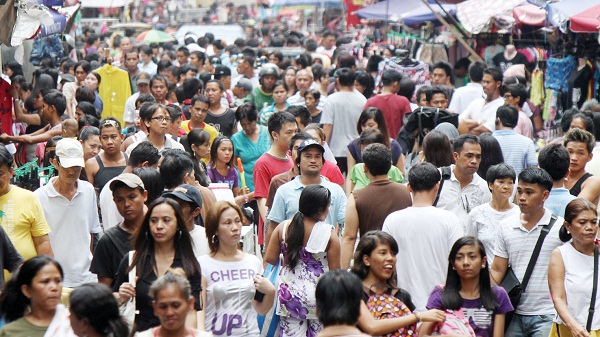
The government wants the proposed national ID system for 105 million Filipinos to be put in place. FILE PHOTO
To ensure that only poor families to be impacted by higher prices as a result of comprehensive tax reform will benefit from the proposed subsidies, the government plans to issue national identification (ID) cards to 105 million Filipinos, the Department of Finance said Friday.
As such, the DOF urged Congress to pass into law the measures aimed at putting in place a national ID system.
“Once the Congress enacts a law enabling a national ID system, the first to be issued such cards will be senior citizens and persons with disabilities, followed by members of the 5.2 million poorest households in the country not yet covered by the ongoing conditional cash transfer initiative of the Department of Social Welfare and Development known as the Pantawid Pamilyang Pilipino Program (4Ps),” Finance Undersecretary Karl Kendrick T. Chua said in a statement.
“The Philippine Statistics Authority will issue the ID cards, with the National Economic and Development Authority providing oversight functions. The DSWD, meanwhile, will coordinate the various social benefits programs that will be put in place under ‘Train,'” Chua added, referring to the Duterte administration’s Tax Reform Acceleration and Inclusion Act under House Bill No. 5636.
Train contains the first tax reform package aimed at bringing down the personal income tax rates while slapping new or additional taxes on consumption, which are expected to hike prices of basic goods and transport costs.
According to Chua, “the DOF proposal is for the national ID to contain biometrics data about an individual, with the possibility of adding an EMV [Europay-Mastercard-Visa] chip card to load the cash subsidies for persons legally entitled to such benefits.”
“The ID will also contain information to determine if a person can take advantage of discounts in medicines, commuting, health care, education, and other applicable benefits under the law and as specified under Train,” according to Chua.
The proposed national ID will replace all government-issued IDs save for passports and drivers’ licenses, to be issued within two years after passage of a law to 105 million Filipinos, Chua said.
The DOF noted that before Congress went on sine die adjournment, the House committee on population and family relations already approved the proposed establishment of a national ID system.
“Under the proposed ‘Train’, 40 percent of the annual incremental increase from oil excise taxes will go to social-mitigating measures such as targeted cash transfers for the poorest families, public utility operators and drivers, and electricity consumers in small power utilities group [Spug] areas or island-provinces not connected to the main power transmission system. The balance of 60 percent will bankroll projects on infrastructure, education, health, housing and social protection,” Chua said.
Also, “the targeted program for over 10 million households involve unconditional cash transfers (UCTs) of P2,400 for one year for every beneficiary-family,” Chua added.
“An additional 5.2 million households will also be covered by the UCT program, but they would have to register and be issued identification cards to ensure that only the intended beneficiaries get to receive the benefit,” the Finance official said.
As for public utility jeepney drivers, “the government will revive the Pantawid Pasada Program, which will provide each of those with valid franchised vehicles cash cards with amounts of up to P2,200 per month or about P26,400 a year to lessen the effects of the potential slight increase in fuel costs arising from the higher excise tax,” according to Chua, adding that “an alternative solution to mitigate the impact of oil excises on public utility jeepneys is the Jeepney Modernization Program that aims to replace 220,000 jeepneys, including 70,000 in Metro Manila, that are 15 years old and above, with more fuel-efficient vehicles.”
Meanwhile, Chua said “the Pantawid Kuryente Program, which will focus on lifeline consumers in Spug areas that use diesel or bunker fuel to power their communities, will not involve any financing because this will be cross-subsidized by richer households,” citing that “households covered by the Pantawid Kuryente are those that consume less than 100 kilowatts per hour.”/rga